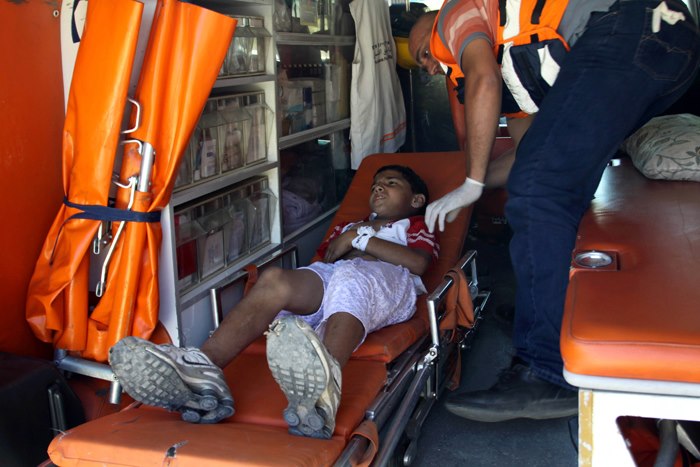Tag: Prisoner
-
Letter from International Activist Under House Arrest in Israel Asking for Support and Solidarity
September 25, 2012 Dear Friends of Palestine, I am writing to you from an apartment in Tel Aviv where I am under house arrest for standing in solidarity with Palestinians fighting a twelve-year road closure in their West Bank town of Kufr Qeddoum. This weekend, I spent forty eight hours in Israeli prisons. I was…
-
Help bring Jalaal home
September 11, 2012 | International Solidarity Movement, West Bank What would you do if 30 men armed with sticks and guns stormed into your home beat your little brothers and began beating your mother and ripping her clothes? On August 28 this happened to sixteen year old Jalaal Daraghmah. He did his best to protect…

